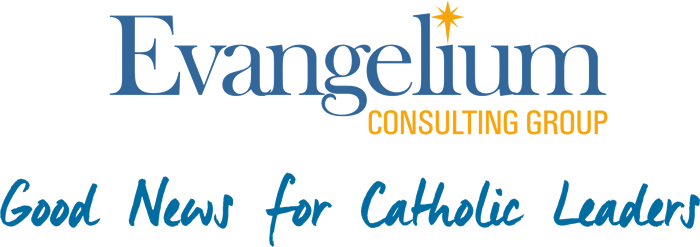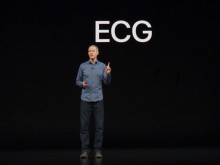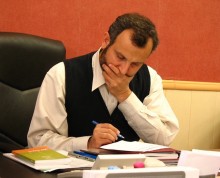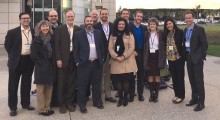Do you like meetings? …Is that a dumb question?
I used to dread meetings, but now I look forward to our diocesan “Education and Formation” team meeting as one of the best parts of my week.
I’m serious…but allow me to explain the “before” and “after.”
It used to be that all the office heads for our diocese – from Evangelization to Youth Ministry to Social Concerns to Finances to Buildings and Grounds, and everything in between – would meet once a month, 15-18 of us seated around tables pushed together to form a big square. After an opening prayer, we would make our way through the preset agenda (typically a series of reports on coming events) and then go round with additional reports on the accomplishments of our individual offices. About two hours later we would mercifully conclude and make our way back to our respective “silos.”
Okay, maybe that’s a bit cynical. But it really was an example of what best-selling author and business consultant Pat Lencioni – whose methodology underlies what we do at Evangelium Consulting Group (ECG) – describes as “meeting stew,” a messy concoction of disconnected ingredients. These meetings were mostly a tedious cycle of reports, with nearly all the creative thinking and work taking place elsewhere.
And now?
Now I’m part of a leadership team of ten members of the diocesan curia (those more immediately involved in the work of education and formation) who meet every week for about an hour. We practice the methodology taught in the ECG team trainings for the “weekly tactical meeting.” This involves a few key principles:
-
There is no pre-set agenda; we build it right there, in real time. It starts with what Lencioni terms the “lightning round,” in which each of us communicates the two or three most important things we are working on that week. We come to the meeting prepared and take about one minute each to name those things. If there are compelling reasons to discuss them further in the meeting, they make it onto the agenda. If not, at least we are aware of each other’s “worlds” without needlessly wasting time. If certain items clearly demand substantial dedicated time or are the purview of only some members, the team agrees to defer these to separate strategic meetings, so as not to turn the weekly tactical into “meeting stew.”
-
We next turn our attention to reviewing the team’s current “thematic goal,” which is the product of previous, intensive deliberation and which answers the question: “If we had to pick one thing to accomplish as a team in the next 9-12 months, what would it be?” Having a single thematic goal (our most recent one was assessing and improving our communication with parish leaders) gives us something concrete to rally around as a team. Certainly we have other goals associated with our day-to-day work, but the thematic goal focuses our creative energy on one important and achievable objective. This is further spelled out by “defining objectives,” sub-goals that tell us the thematic goal is being realized, with specific team members assigned as captains of those objectives. How are these going? If they are sailing along, it’s enough to note that. If one or more is stuck, we put it on the agenda for discussion and troubleshooting.
-
Between the “lightning round” and the goals review, we now have our real-time agenda for a relevant, cohesive, working meeting, and it’s taken us about 20 well-spent minutes to get there. We prioritize the list of items, and in the remaining 40 minutes, we tackle them one by one and commit to “decisions and actions” that will be reviewed at the start of the next meeting.
Much more could be said about our methods for meetings that keep everything from being thrown together in a messy and unsatisfying “stew.” And you can be informed as well as entertained by reading some of Pat Lencioni’s books, like “Death by Meeting,” or “The Advantage.” If you would like your Catholic diocese, parish or other organization to experience the joy and sense of accomplishment of good meetings, you can contact us at ECG to learn more about what we offer.
Let me close by reiterating that, thanks to this new way of doing meetings, I have learned to love them. We make visible progress – we get stuff done – and it feels great!















